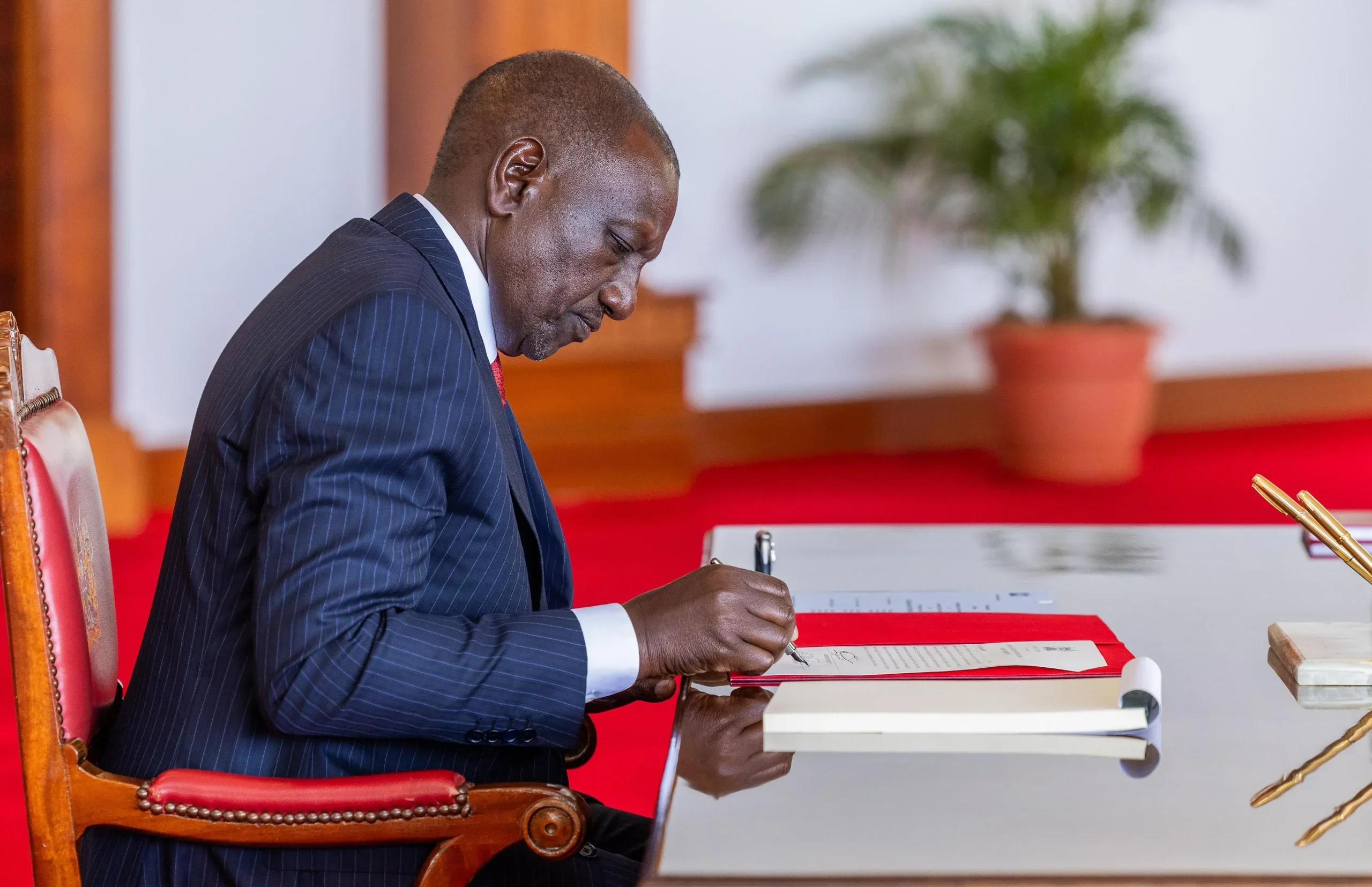On April 17, President William Samoei Ruto declined to assent to the Conflict of Interest Bill, 2025, returning it to Parliament on April 28 with a detailed memorandum outlining critical amendments.
The Bill, passed by the National Assembly on December 5, 2024, and the Senate on April 8, 2025, aims to regulate and manage conflicts of interest among public officers and is key to Kenya getting out of the FATF grey list.
However, President Ruto argues that the current draft falls short of establishing a comprehensive and enforceable system, citing loopholes that could undermine public integrity.
Exercising his veto powers under Article 115 of the Constitution, President Ruto’s referral emphasises the need for a more robust framework to prevent public officers from exploiting their positions for personal gain.
His recommendations focus on tightening definitions, clarifying administrative roles, expanding oversight powers, and closing gaps that allow conflicts to persist through proxies or subjective exemptions.
Ruto’s Key Concerns
President Ruto’s memorandum highlights several deficiencies in the Bill that, which he says if unaddressed, could weaken its effectiveness.
A primary concern is the lack of clear definitions for critical terms like “family,” “relative,” and “undeclared asset” in Clause 2.
“Without these, public officers could use family members or relatives as proxies to bypass restrictions, concealing assets acquired through conflicts of interest” Ruto told MPs adding that absence of a mechanism to initiate forfeiture proceedings for such assets further limits accountability.
Another significant issue is the administrative structure outlined in Clause 5, which assigns oversight to both the Ethics and Anti-Corruption Commission (EACC) and unspecified “reporting authorities.”
President Ruto argues this duality conflicts with Article 79 of the Constitution, which mandates the EACC as the sole body to enforce Chapter Six on leadership and integrity. He also critiques clauses that fail to address perceived or potential conflicts, allow subjective “good faith” defenses, and omit accountability for gifts or benefits received by family members.
Proposed Amendments: A Tighter Ethical Framework
President Ruto’s has made recommendations that are designed to create a more transparent and enforceable system and Parliament has 21 days to consider the proposals.
If Members of Parliament would want to override the President’s veto, they will need to raise two-thirds majority in both the National Assembly and the Senate.
To prevent evasion, Ruto proposes defining “family” as a public officer’s spouse, dependent child, parent, or their equivalents through marriage, and “relative” as anyone connected by birth, marriage, adoption, or affinity.
He also introduces “undeclared asset” as any asset not disclosed in mandatory declarations, empowering the EACC to pursue forfeiture proceedings.
Ruto recommends removing “reporting authorities” from Clause 5, granting the EACC sole responsibility for administering the Act. This aligns with constitutional provisions and eliminates overlapping jurisdictions.
The President suggests adding a function for the EACC to initiate forfeiture proceedings for undeclared or unexplained assets, addressing the concealment of illicit gains.
To capture real, perceived, and potential conflicts, Ruto proposes redefining a conflict of interest to include situations where a public officer’s private interests could reasonably impair objectivity or might conflict with future duties.
The “good faith” exception in Clause 12, which allows public officers to justify granting special treatment, is targeted for deletion. Ruto argues this loophole undermines the Bill’s preventive intent.
To curb indirect influence, Ruto proposes requiring public officers to declare gifts or complimentary treatments accepted by family members or relatives within 48 hours, ensuring potential conflicts are assessed.
The President suggests expanding gift registers to include all recipients, not just public officers, and removing provisions for donations to reporting entities, focusing solely on individual accountability.
Ruto recommends prohibiting public officers from acquiring interests in any entity contracted with any reporting entity, not just their own, to prevent influence in government contracting.
The exemption for Members of Parliament and county assemblies from recusal requirements is proposed for deletion, ensuring uniform accountability.
To enhance compliance, Ruto proposes defining “material change” in asset declarations to include significant value shifts, acquisitions, disposals, or changes in marital or corporate status.
The EACC’s ability to assess declarations for completeness and accuracy is explicitly added, strengthening its oversight role.
President Ruto’s referral underscores his administration’s commitment to combating corruption and enhancing public trust in governance. By addressing gaps that could allow public officers to exploit their positions, the proposed amendments aim to align the Bill with Chapter Six of the Constitution, which emphasises integrity in leadership.
The focus on family accountability and asset forfeiture signals a zero-tolerance approach to hidden conflicts. However, the proposals may face resistance in Parliament.
The removal of the “good faith” exemption and broader restrictions on business interests could be contentious among public officers, who may argue they overly restrict legitimate activities. The expanded EACC mandate may also spark debates about resource allocation and the Commission’s capacity to handle increased responsibilities.
The proposed amendments aim to create a watertight framework that prevents conflicts of interest, ensures accountability, and protects public resources.
As Parliament reconsiders the Bill, the nation watches to see whether these reforms will translate into a stronger, more transparent public service—or face dilution in the legislative process. For now, Ruto’s memorandum sets a high bar for integrity in Kenya’s governance.












